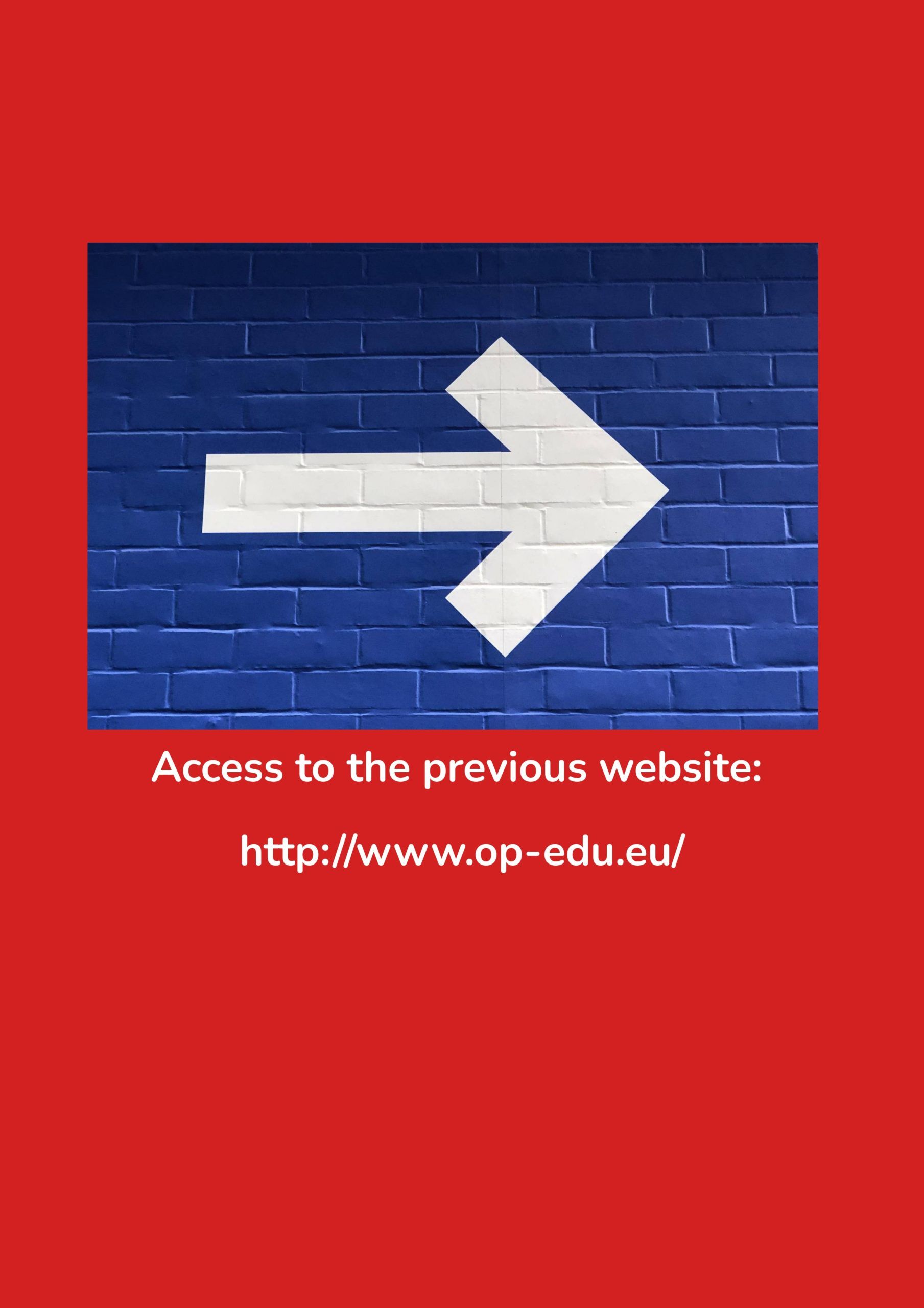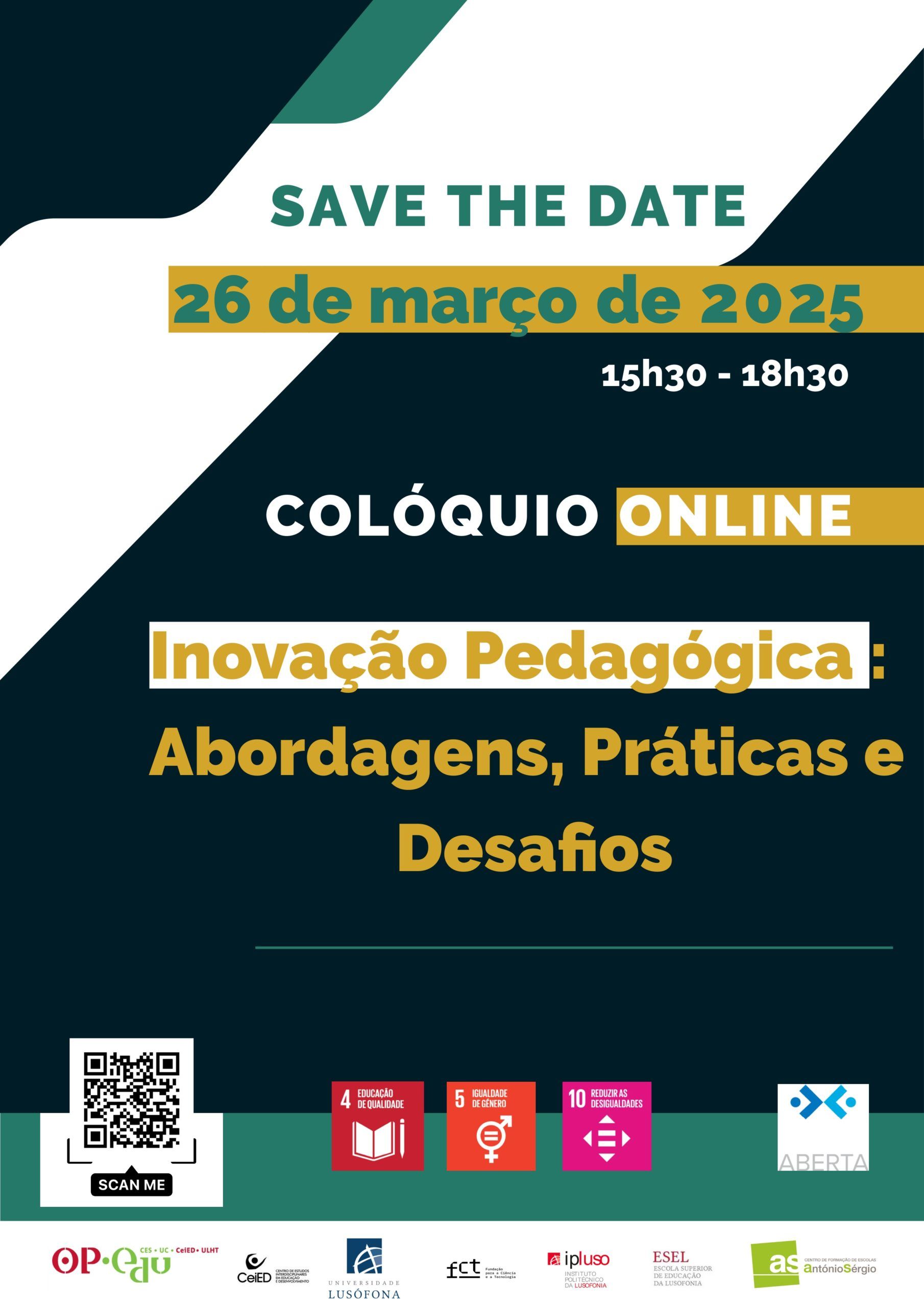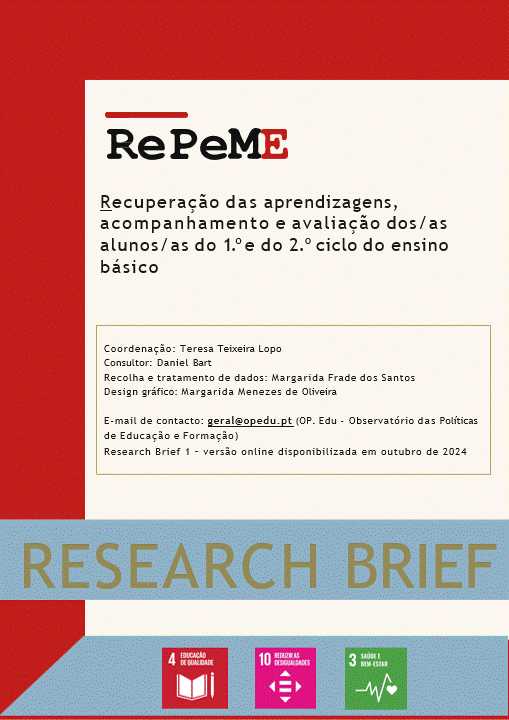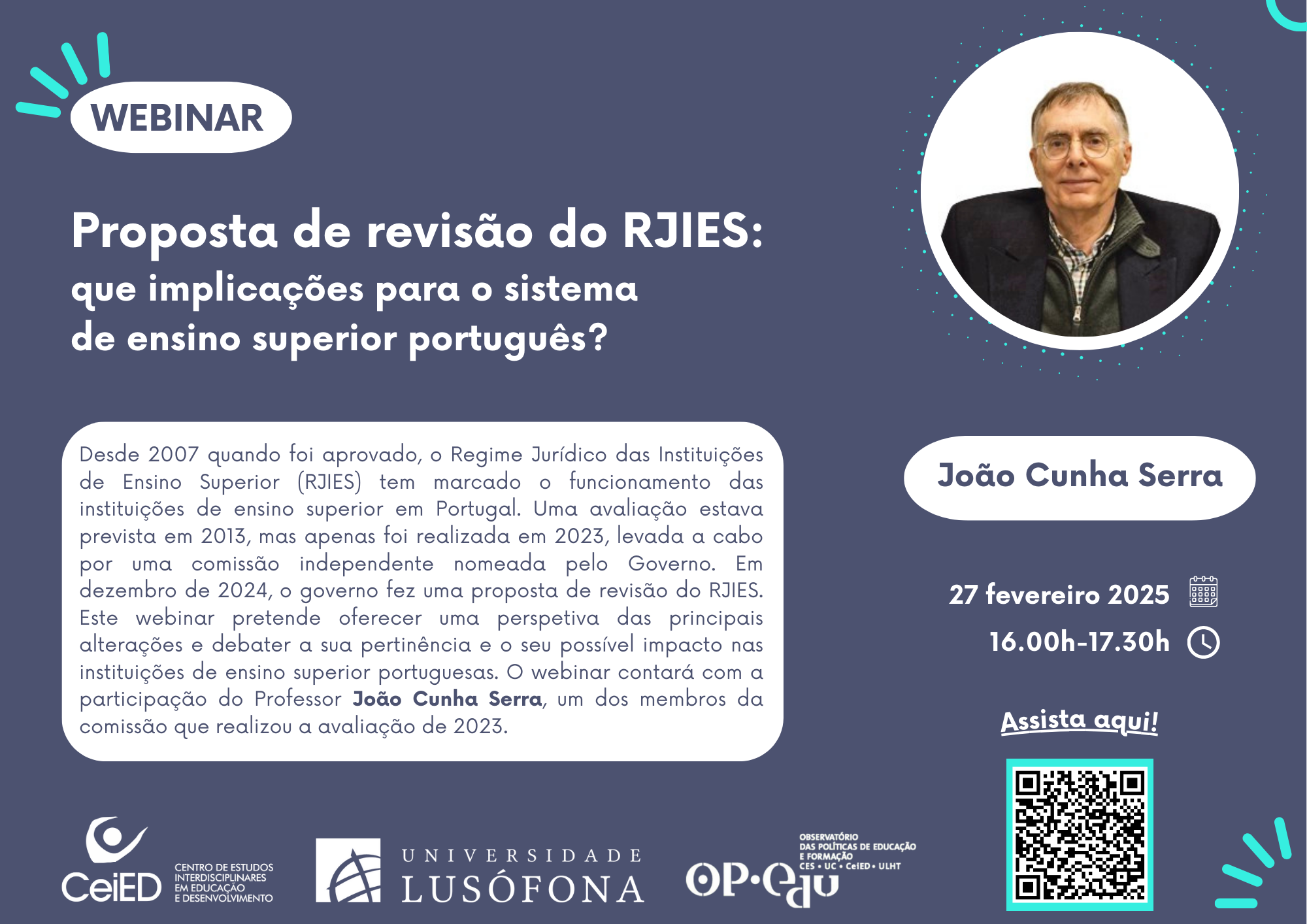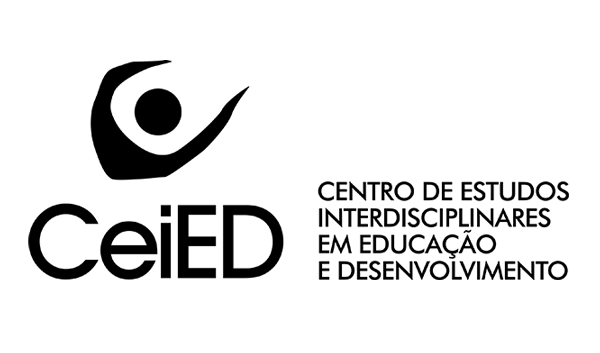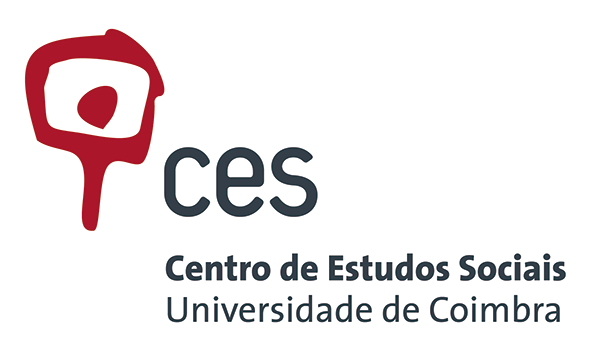Conferences and Seminars
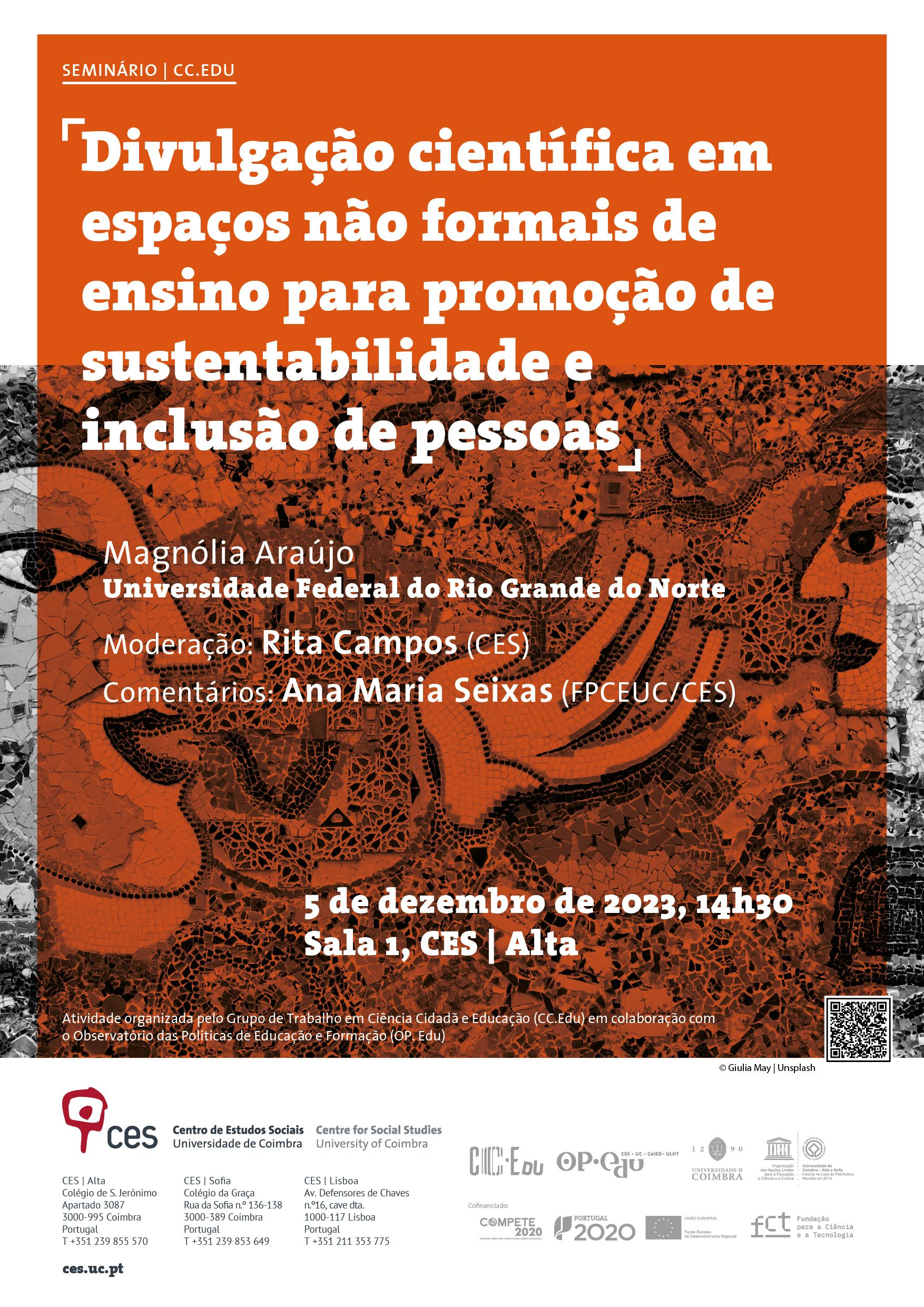
Scientific outreach in non-formal education spaces to promote sustainability and people’s inclusion | 5th December – 2.30pm | Room 1, CES – Alta
The first seminar of the cycle of International Seminars of the Citizen Science and Education Working Group (CC.Edu) will be held on 5 December at 2.30pm in Room 1 – CES Alta, under the theme Science outreach in non-formal education spaces to promote sustainability and people’s inclusion. The seminar will be presented by Magnólia Araújo, Professor at the Federal University of Rio Grande do Norte (UFRN-Brazil), with comments by researcher and co-director of OP.Edu Ana Maria Seixas.
More information about the event can be accessed here.
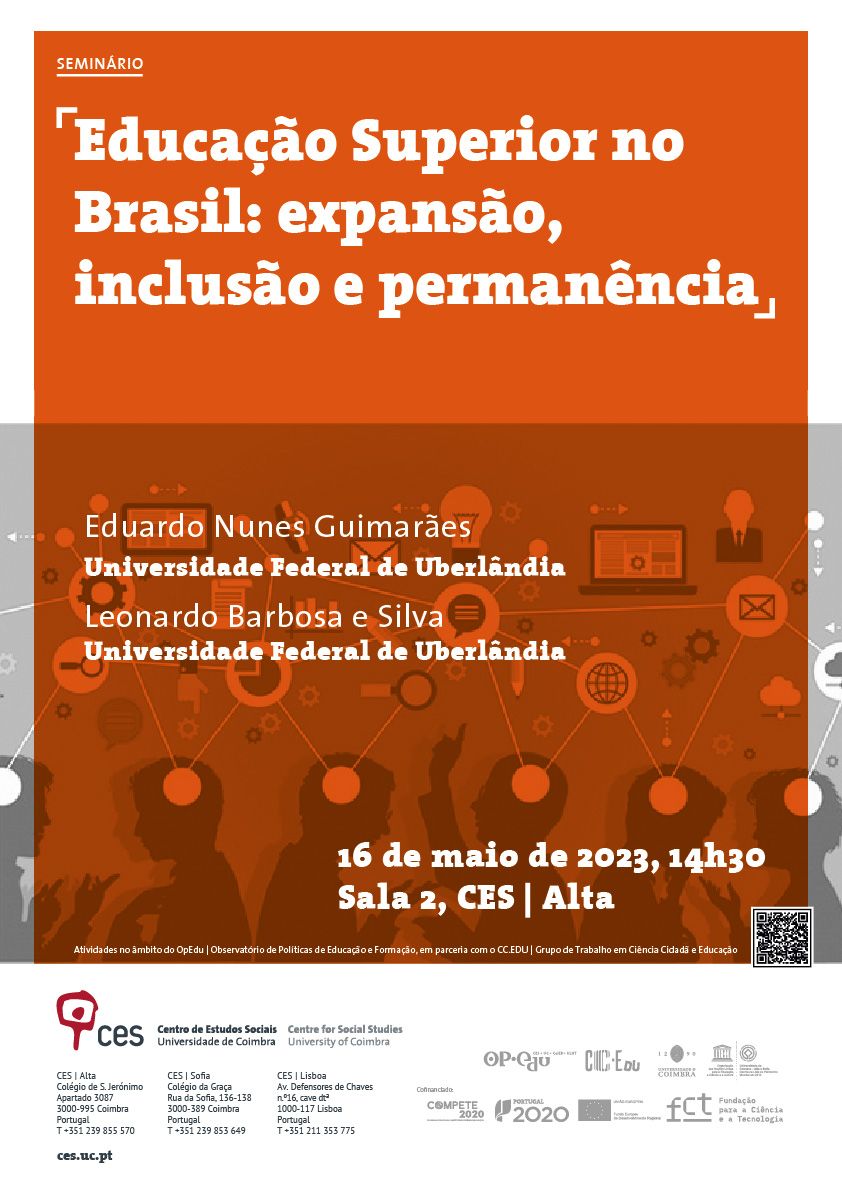
Seminar Higher Education in Brazil: expansion, inclusion and permanence | May 16, 2023 – 2:30 PM | Room 2, CES | Alta
Presentation
The seminar has as theme the Public Higher Education in Brazil, addressing in particular two issues: expansion and dropout. On the first aspect, it aims to make a regionalized analysis of the expansion of the Federal Institutions of Higher Education in the territory with reference to the volume of enrollment and the profile of graduates. By publishing a detailed examination of the regional profile of in-person undergraduate students, we expect to demonstrate the significant contribution that this public policy of higher education has made to the process of social inclusion, research and professional training in Brazil. Dropout will also be addressed, problematising the current use of definitions and measures to evaluate institutions. Such uses have often been aligned with a quantitative, fiscalist and with a markedly colonial perspective.
Program
- Expansion, inclusion and internalisation of Federal Institutions of Higher Education: an inconclusive project for Brazil | Eduardo Nunes Guimarães (Professor at the Institute of Economics of the Federal University of Uberlândia, post-doctoral visiting researcher at CES)
- When is dropout a problem? Reviewing public policies for higher education | Leonardo Barbosa e Silva (Professor at the Institute of Social Sciences of the Federal University of Uberlândia, post-doctoral visiting researcher at CES)
This seminar is part of the activities of Op.Edu | Observatory for Education and Training Policies, in partnership with CC.EDU | Working Group on Citizen Science and Education.
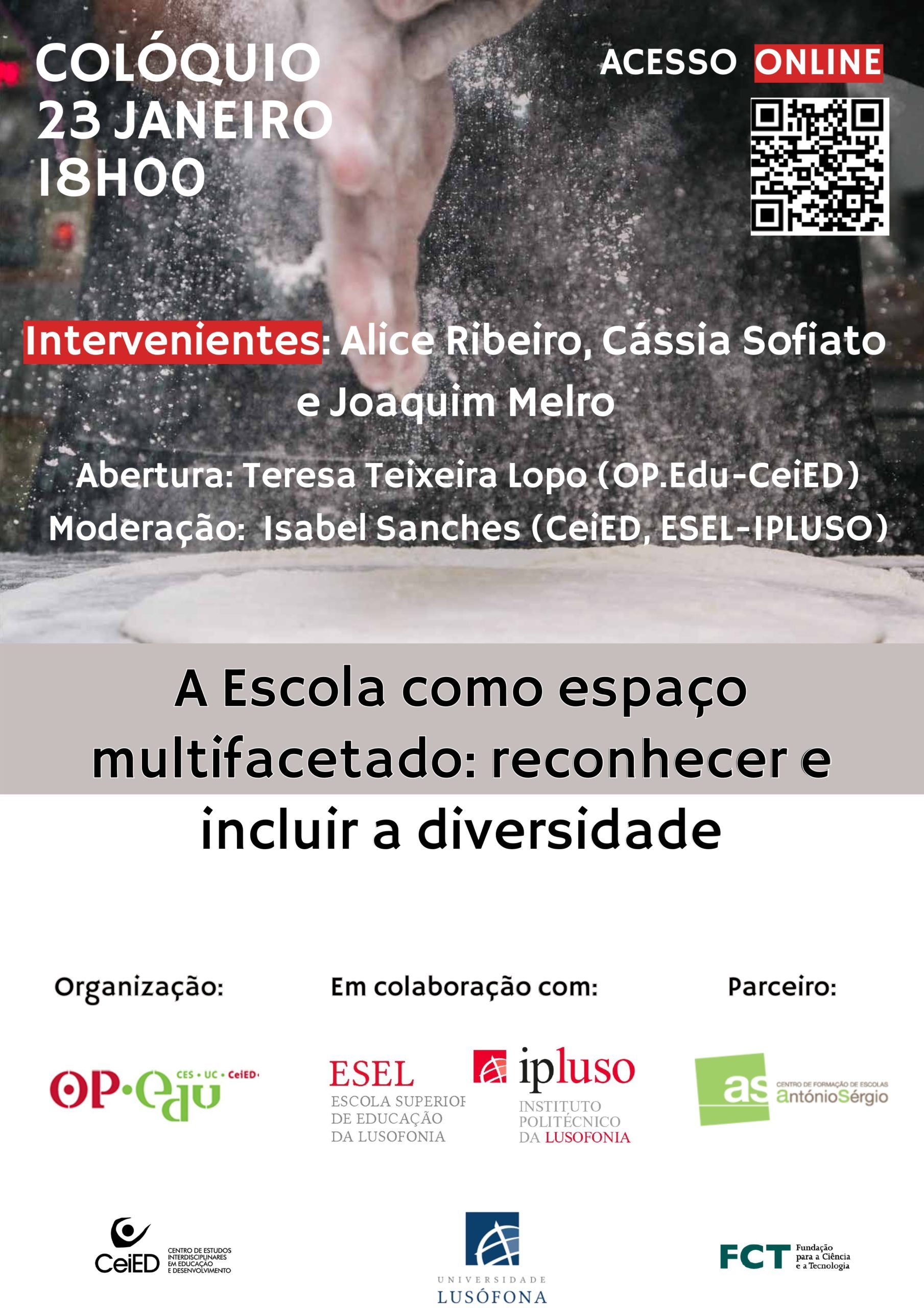
Colloquium School as a multifaceted space: acknowledging and including diversity | January 23, 2023 – ONLINE – 6:00 PM
The third colloquium of the Cycle April 25 50 Years: Looking into the Past, Thinking about the Future will take place on January 23 at 6:00 PM (Portugal time), under the theme School as a multifaceted space: acknowledging and including diversity.
Inclusion is a broad and complex principle and, as such, it should be a subject for reflection and guidance for education policies and practices. Assuming this premise, the Observatory for Education and Training Policies (OP.Edu) invites the following researchers to reflect and discuss, in this online colloquium open to the public, the epistemological, educational and cultural complexity that has shaped the principles and practices of inclusive education:
- Alice Ribeiro (Head of the Inclusion Support Centre, University of Porto, Portugal)
- Cássia Sofiato (Department of Philosophy of Education and Education Sciences, Faculty of Education, University of São Paulo, Brazil)
- Joaquim Melro (Director of António Sérgio Training Centre and researcher at the University of Lisbon, Portugal)
The colloquium will also include the participation of Teresa Teixeira Lopo (OP.Edu-CeiED) in the opening session, and Isabel Sanches (CeiED, ESEL-IPLUSO), who will moderate the debate.
The event, organized by OP.Edu in collaboration with the School of Education of IPLUSO, will be held and broadcast online. Link: https://videoconf-colibri.zoom.us/j/98469945254
In partnership with the António Sérgio Training Centre, the colloquium is certified for participants from Portugal as a Short Duration Training Action (ACD, under Order 5741/2015 of 29 May), for the purposes of career progression of early childhood educators, primary and secondary school teachers, and special education teachers.
Those interested in obtaining this certification will need to register at the following link: https://www.cfantoniosergio.edu.pt/
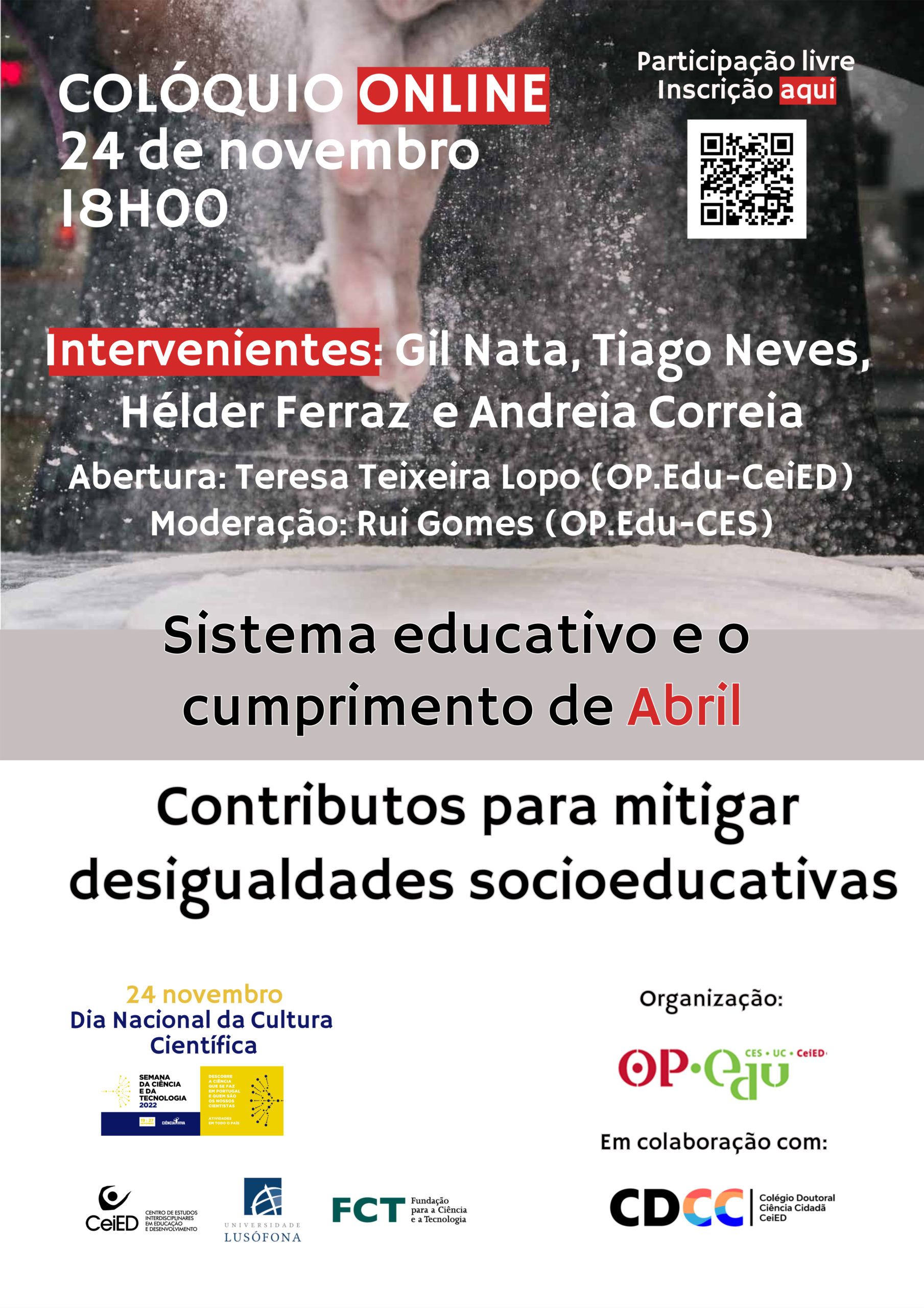
April 25 50 Years: Looking into the Past, Thinking about the Future | Educational system and the fulfilment of April: contributions to mitigate socioeducational inequalities | November 24 – ONLINE – 6:00 PM
The second colloquium of the Cycle April 25 50 Years: Looking into the Past, Thinking about the Future will take place on November 24 at 6:00 PM, under the theme Education system and the fulfilment of April: contributions to mitigate socioeducational inequalities.
“April was a dream and continues to be a project for social justice. An educational system that is effective in mitigating socioeconomic inequalities is a fundamental pillar of that project.”
In this Colloquium, OP.Edu invites the following researchers from the Centre for Research and Intervention in Education (CIIE) of the Faculty of Psychology and Education Sciences (FPCEUP):
- Gil Nata
- Tiago Neves
- Hélder Ferraz
- Andreia Correia
Based on years of research on socioeducational (in)justice, they will discuss concrete solutions to make the Portuguese education system more fair and equitable. Their discussion will address:
- Grade inflation and access to higher education
- Portuguese compensatory education policy (TEIP)
- Referral to professional education paths
- Impacts of monitoring and accountability instruments on equity
In their words, this will be “giving our (small) contribution to help fulfil April”.
The Colloquium will also include the participation of Teresa Teixeira Lopo (OP.Edu-CeiED) for the Opening, and Rui Gomes (OP.Edu-CES), who will be responsible for the Moderation of the debate.
The event, organized by OP.Edu in collaboration with the Citizen Science Doctoral College – CeiED (CDCC), will be held and broadcast online.
Participation in the Colloquium is free, but prior registration is required at: https://forms.gle/r2VssSuMAwaqbd758
With this Colloquium taking place on November 24, and in pursuit of its mission to disseminate and share scientific knowledge, OP.Edu joins the celebration of the National Day of Scientific Culture, created in honor of professor, science communicator and researcher Rómulo de Carvalho.
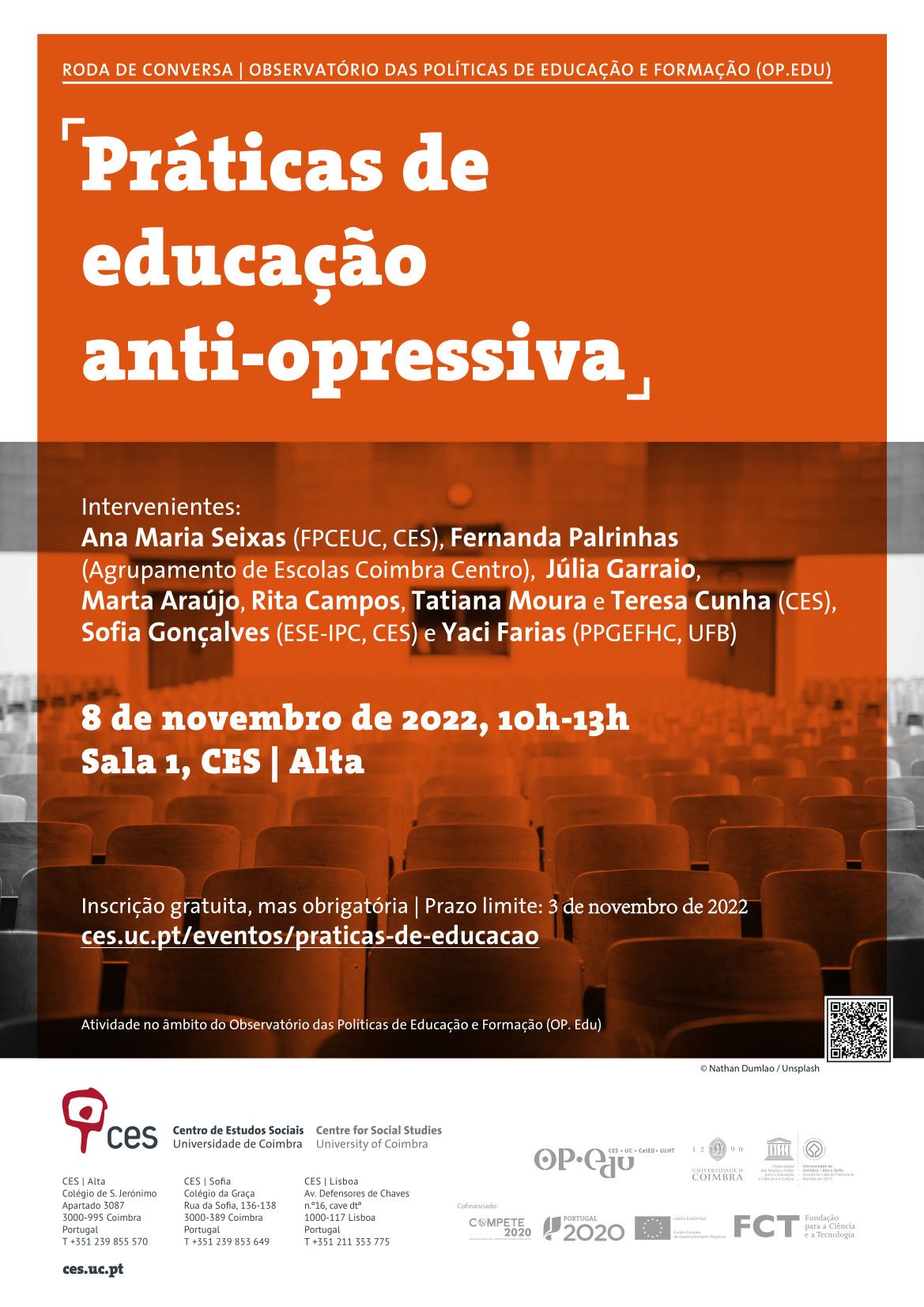
Roundtable | Anti-Opressive Education Practices | Coimbra CES Alta – Room 1 | November 8 | 10:00 AM-13:00 PM
It will take place on the November 8, in CES Alta – Room 1 – starting at 10:00 AM – the Roundtable Anti-Opressive Education Practices.
This roundtable intends to promote a dialogue about teaching practices based on an anti-oppressive conception of education. It will be a space to debate pedagogical practices that challenge the hierarchies that maintain social inequalities through unequal power relations and that, therefore, seek to confront injustices that marginalize and harm individuals and social groups.
The roundtable will start with an initial presentation on some examples of anti-oppressive educational proposals developed in the context of a doctoral research project. Afterwards we will discuss the urgent need to expand and consolidate anti-oppressive educational practices in a more global context.
Additional information on this event can be found here.
Notícias / News
- Home
- Conferences and Seminars
